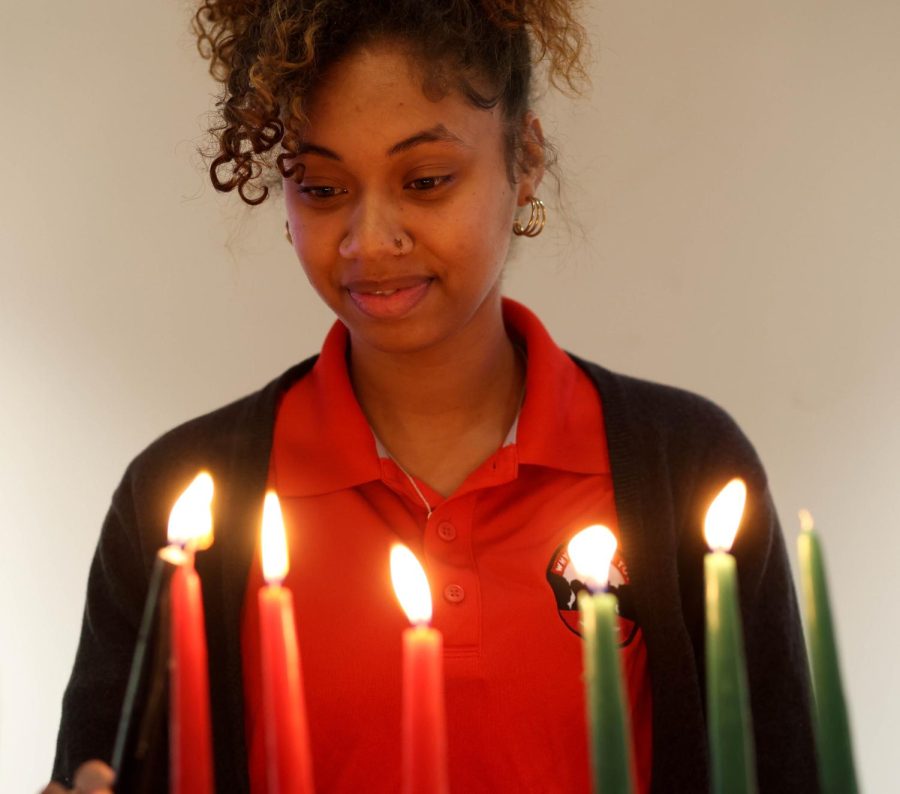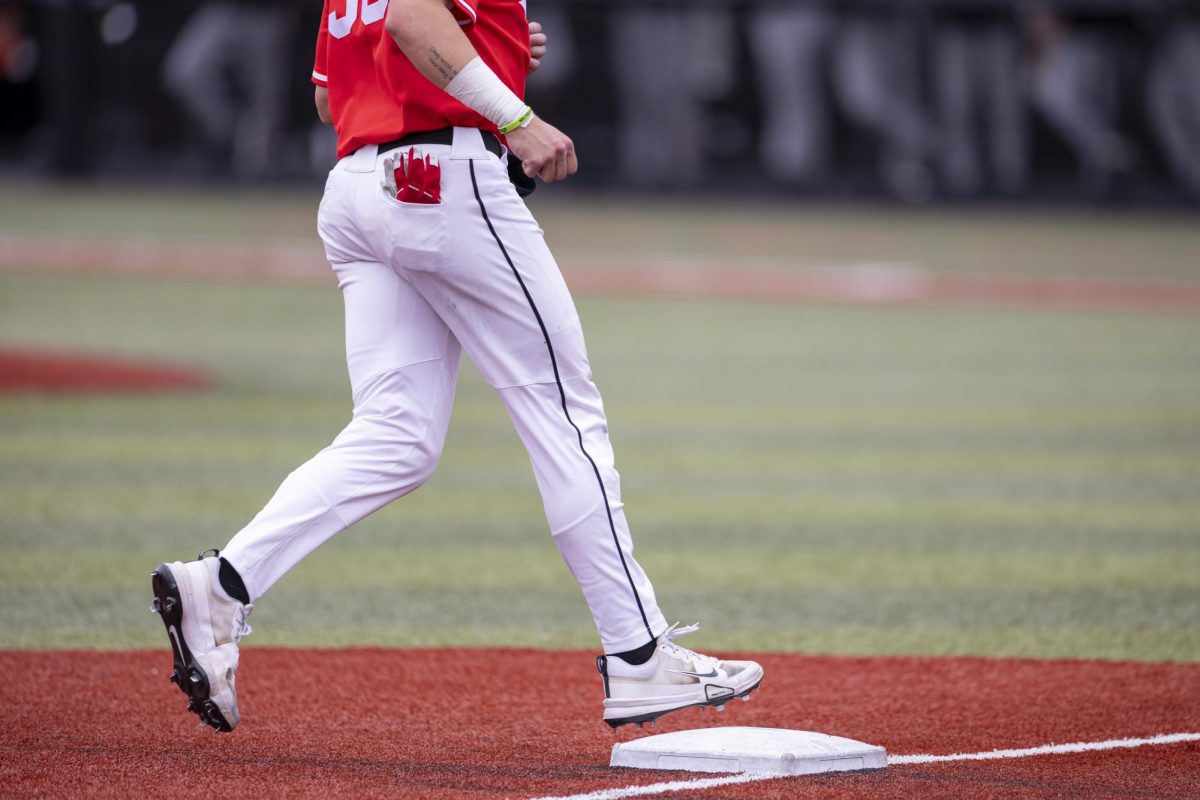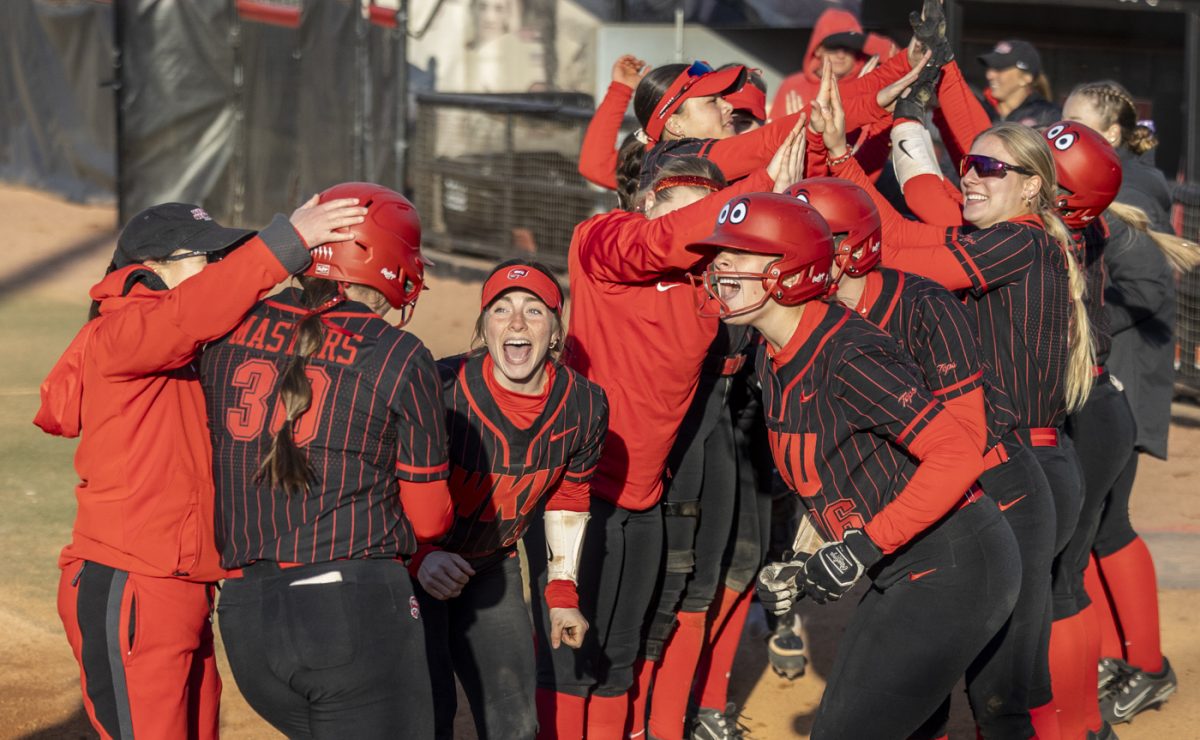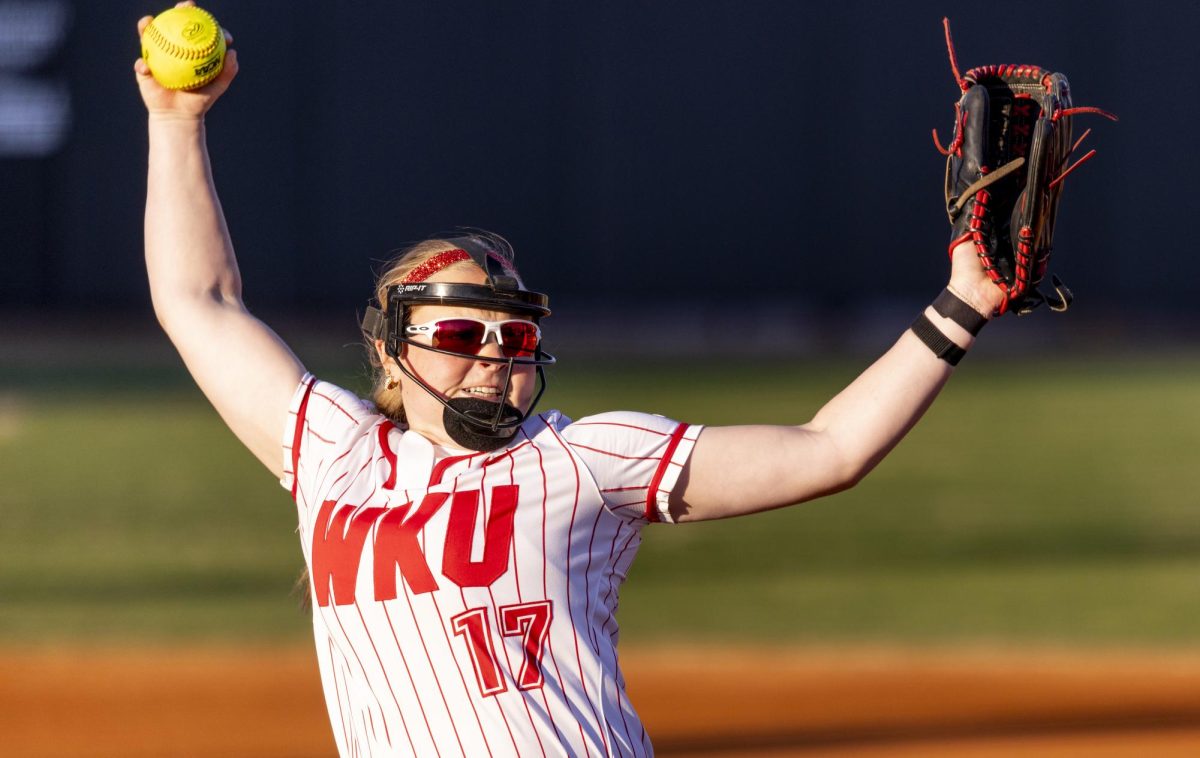WKU African American studies program hosts annual Kwanzaa celebration
Tylia Standard lights the candle for “Kuumba” during the Kwanzaa celebration at Mahurin Honors College at WKU on Thursday, Dec. 1, 2022.
December 2, 2022
The WKU African American studies program and the history department joined together Dec. 1 in order to celebrate Kwanzaa with students on campus.
Saundra Ardrey, history professor and member of the African American studies program, organized and was one of the leaders of the event. Ardrey said the celebration has been going on for at least 15 years on campus.
“Kwanzaa is a celebration of the African American community,” Ardrey said. “It also lets not only black students and black folks know about the contributions and great things that come out of the African American community.”
Through the event, the traditional seven days of Kwanzaa celebration were combined and discussed in one night. Traditionally, each day has a different principle assigned to it.
In the event, different individuals were called to discuss the principle they were assigned. Students and faculty from the forensics team, political science department and the economics department all took part in readings.
With discussing the principles, there were different aspects including trivia, poetry readings and interpretive performances, led by faculty and students.
Everyone was welcome to join in the celebration, including those who had not participated in Kwanzaa before. The event was informative for those who had not previously known what Kwanzaa is, helping to draw in individuals to come and celebrate.
Myricle Gholston, a freshman, was a student in attendance who had not previously celebrated Kwanzaa.
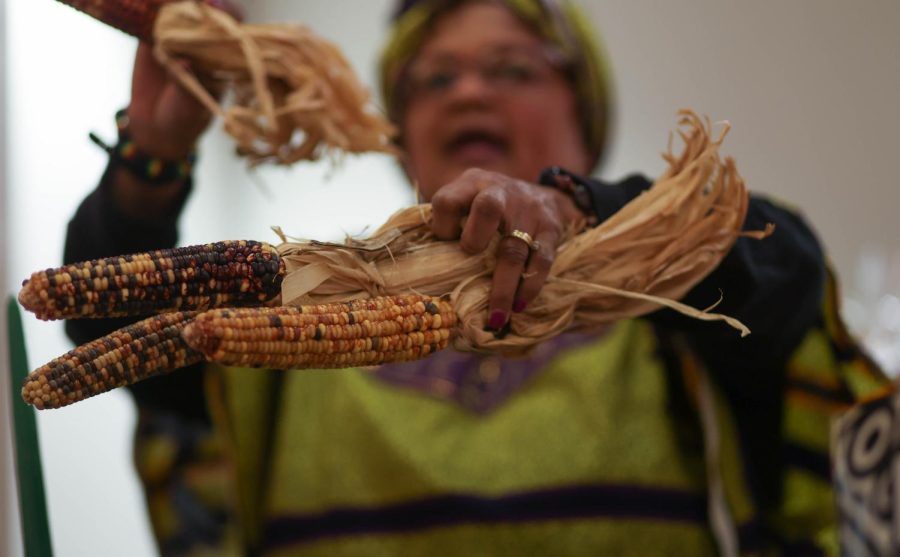
“I just feel like it’s very important as an African American to know about my history and about my ancestors,” Gholston said. “I came today to celebrate something I have never experienced.”
Tani Washington, a junior in the African American studies program, assisted in the organization of the Kwanzaa celebration.
Washington said when she began as the student coordinator for the African American studies program, Audrey and Rosa wanted to continue hosting the Kwanzaa celebration, and she wanted to help.
“I think as a predominantly white institution, celebrating blackness in any capacity is very difficult,” Washington said. “When it comes to an event that brings black people together it just feels like a very unique and wholesome thing.”
The event concluded and participants were able to eat traditional “soul food,” including peanut soup, greens, fried chicken and cornbread.
Kwanzaa is traditionally celebrated from Dec. 26 to Jan. 1 and is a cultural, not religious, holiday. Individuals are able to celebrate Kwanzaa on top of other religious holidays like Christmas.
For more information about the African American studies program, visit https://www.wku.edu/afam/.
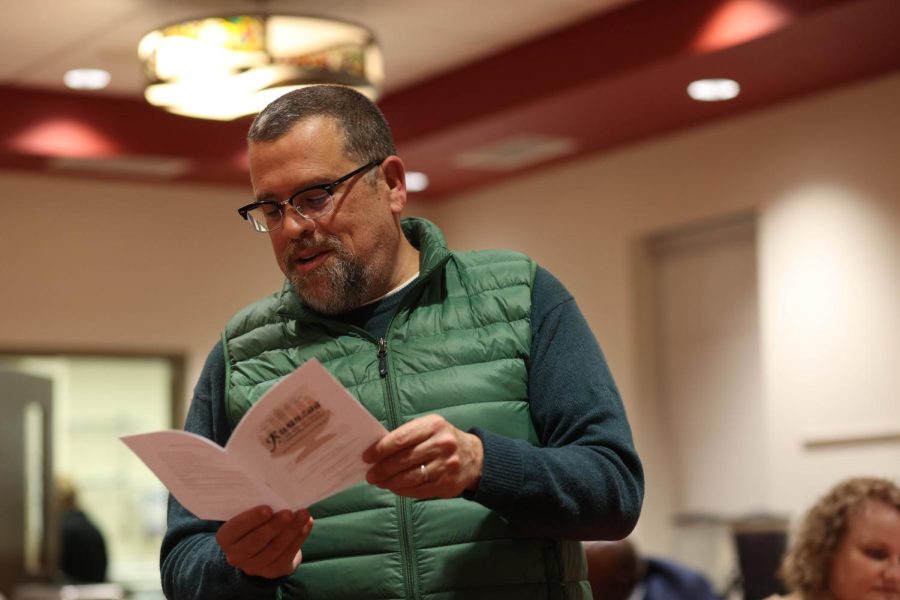
News reporter Molly Dobberstein can be reached at molly.dobberstein519@topper.wku.edu

